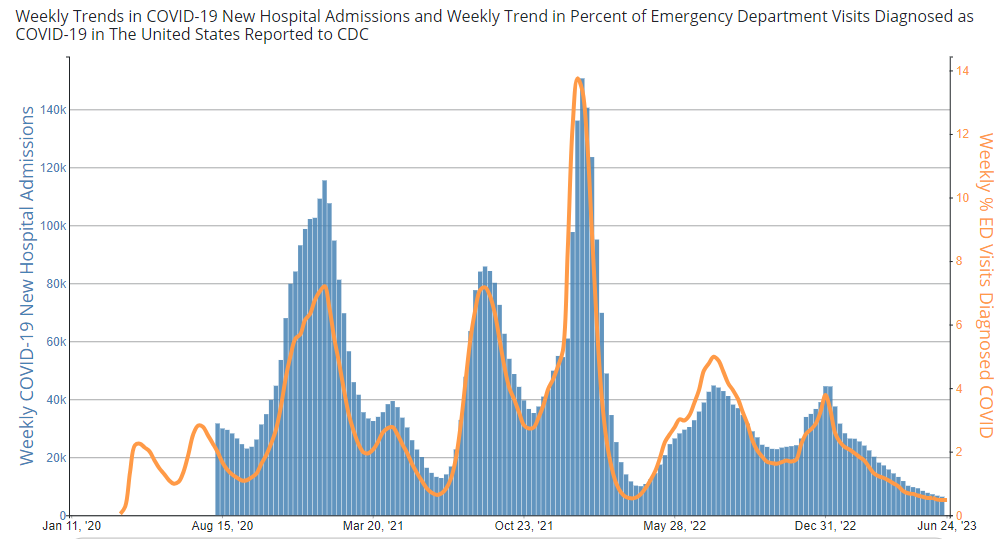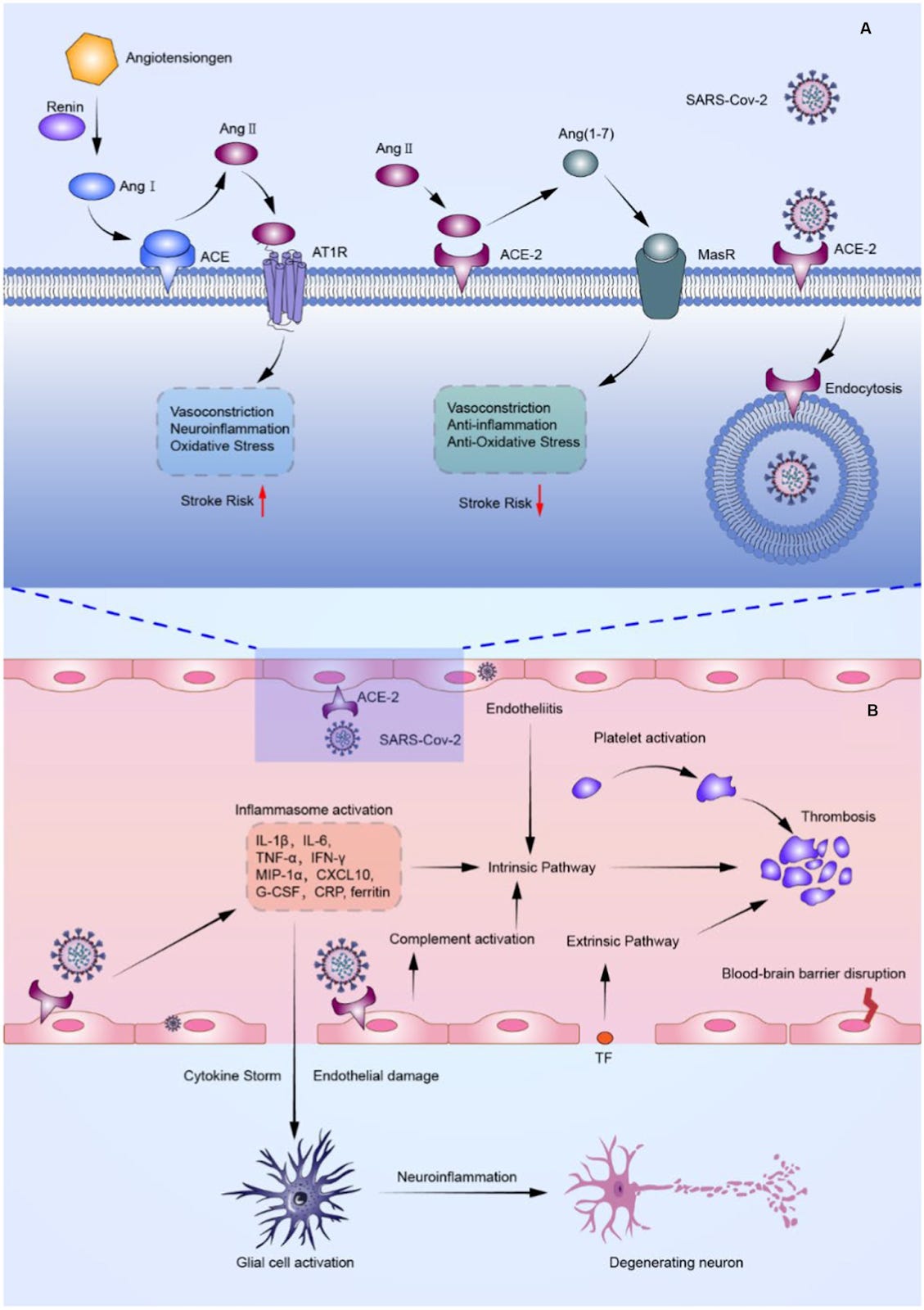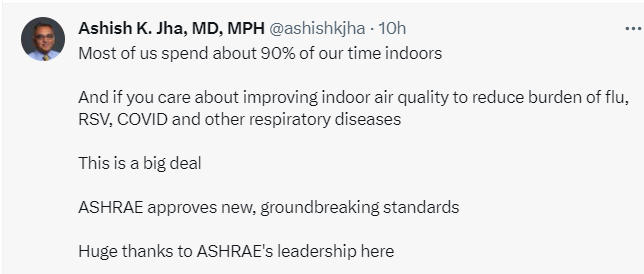As we move into the July 4th holiday, COVID hospitalizations, emergency room visits and wastewater levels are all low, but temperatures especially in the southern U.S. are very high. We continue to have a “variant soup” of many different subvariants showing up, but none are pushing the others out which is good news. As many people in the hottest areas will be moving indoors for the foreseeable future, it will be important for people to do a COVID test if they get a “summer cold”.
In immunocompromised lymphoma patients, researchers found that the level of anti-spike protein antibodies could help predict who would get breakthrough infections. The authors recommend routine anti-spike antibody testing for immunocompromised people. The researchers noted that antibodies matured with repeated vaccinations, producing higher quality antibodies. Booster vaccinations to updated variants are especially important in lymphoma and blood cancer patients in order to keep antibody levels high as T cell response did not show much of a difference with the boosters.
A new review of 53 studies shows that vaccine efficiency against severe COVID infection was strong with the first monovalent booster and with the bivalent booster. However, giving a second monovalent booster using mRNA of the original virus from 2020 did not protect as well against newer Omicron variants. The Fall 2023 booster vaccine will be a monovalent mRNA vaccine against XBB since XBB and its subvariants are in circulation now.
A new report in Blood shows that the SARS-CoV-2 virus preferentially infects people with blood group A because of glycans on the blood cells. A part of the receptor binding domain of SARS-CoV-2 is very similar to galectins on the type A blood cells. Approximately 30% of people have type A blood.
A review of 11 studies showed viral persistence of either live SARS-CoV-2 virus or virus fragments in children and babies. We do not know if this will cause issues in the future.
With the removal of mandatory masking, there was a recent outbreak of COVID in patients and staff at Beth Israel hospital in Boston. The hospital is now requiring masks on that hospital ward to help reduce transmission.
Regarding strokes from acute COVID infection, a new review shows that SARS-CoV-2 can trigger endothelial inflammation, hypercoagulation, alterations in the renin-angiotensin-aldosterone system and can also be associated with cardiogenic embolism.
Post-Acute COVID and Long COVID
Dr. Al-Aly and colleagues have analyzed patient data from the V.A. hospitals and written many articles showing that there are significant increases in long term health conditions including heart attacks, stroke, and Type II diabetes in the year after a COVID infection. Washington University in St. Louis did a feature on Dr. Al-Aly’s research and his interesting life in their magazine.
Regarding loss of smell (anosmia) and loss of taste (ageusia) after COVID infection, most people regain their sense of smell, but 24% of people recover only a partial ability to smell and 4% of people never regain their sense of smell again. Most people get back their sense of taste, but 21% of people who lost their sense of taste from COVID infection will only partially regain it, while 2.6% of people will remain without the ability to taste permanently.
Yesterday, there was an exciting preprint on ME/CFS and Long COVID from the Bhupesh Prusty lab in Germany showing that increased fibronectin (FN1) and very low natural IgM antibodies to FN1 are biomarkers for both ME/CFS and Long COVID and are related to the severity of both of these conditions. Viral reactivation of HHV-6 in ME/CFS and reactivation of HSV-1 in Long COVID, and of EBV in both diseases, was seen by increased IgG to the dUTPases of each of these viruses. Elevated FN1 triggers the Toll-like Receptor 4 (TLR4) inflammation pathway. There is a complex diagram including subsequent triggers of other pathways including the complement cascade below.
People with Long COVID can have difficulties speaking. Language specialist Dr. Cummings found that there are cognition-based language difficulties in Long COVID which are in the class of cognitive-communication disorders. Speech pathologists typically assess and treat other cognitive-communication disorders such as traumatic brain injury and they may be helpful in evaluating and treating Long COVID patients with language difficulties.
The WHO announced that 36 million Europeans (1 in 30 Europeans) have Long COVID that makes them unable to return to normal life. The CDC stated that Long COVID is adding to the labor shortage which is hurting the U.S. economy. Long COVID medical care costs for employers have now outpaced costs for diabetes, and it is estimated that lost wages from people disabled with Long COVID and increases in health care costs will soon top $3.7 Trillion for the United States.
Long COVID research opportunities
There are several groups trying to register people with Long COVID, ME/CFS and other severe fatigue causing diseases, as well as healthy controls for research studies. In the United States, people can sign up for the registry with Stanford and the Open Medical Foundation and in the UK people can sign up with DecodeME. A commercial company called BiomeSight will test the gut microbiome for people with Long COVID for a reduced price of $92. Mount Sinai is now offering a course for health care providers on Long COVID rehabilitation.
In non-COVID news, on the one year anniversary of the Dobbs ruling against abortion rights, OBGYN organizations united with ACOG stating “we come together to demand a return to patient autonomy and an end to restrictions that prevent obstetrician–gynecologists from practicing medicine and caring for patients to the fullest extent of our abilities.” A new study from Denmark showed that women who received estrogen-progestin menopausal hormone therapy had a 24% increased risk of developing dementia or Alzheimer’s disease. In another study, vaginal tamoxifen was shown to treat menopausal vaginal atrophy.
In a phase 2 trial and at its highest dose, Retatrutide caused obese people to lose 24% of their body weight by 48 weeks. This is a higher weight loss than any of the other new GLP-1 anti-obesity medications. The FDA approved the first allogeneic pancreatic cell treatment for type 1 diabetes (T1D) in adults called donislecel (Lantidra).
I will be taking off next week from the newsletter. Have a happy July 4th holiday!
Ruth Ann Crystal MD
Twitter: https://twitter.com/CatchTheBaby
Non-COVID news:
6/23/23 ACOG: Obstetrics and Gynecology Organizations Unite on Joint Call to Action on the one-year Dobbs Anniversary https://buff.ly/44cbRA8
The stripping away of abortion rights has affected all corners of obstetric and gynecologic care, demonstrating once again that abortion is indeed essential health care.
Retatrutide:
6/26/23 Triple–Hormone-Receptor Agonist Retatrutide for Obesity — A Phase 2 Trial | NEJM https://buff.ly/440WFFC
Retatrutide (LY3437943) is an agonist of the glucose-dependent insulinotropic polypeptide, glucagon-like peptide 1, and glucagon receptors.
At 24 weeks, retatrutide
−7.2% of weight in the 1-mg group,
−12.9% of weight in the combined 4-mg group,
−17.3% of weight in the combined 8-mg group, and
−17.5% of weight in the 12-mg group, as compared with −1.6% in the placebo group.
At 48 weeks,
−8.7% of weight in the 1-mg group,
−17.1% of weight in the combined 4-mg group,
−22.8% of weight in the combined 8-mg group, and
−24.2% of weight in the 12-mg group, as compared with −2.1% in the placebo group.
6/27/23 NIH Director's Blog: Changes in Human Gut Microbiome Precede Alzheimer’s Cognitive Declines https://buff.ly/442vavr
6/26/23 Healio: Vaginal Tamoxifen Capsule Appears Safe In Postmenopausal Women With Moderate To Severe Vulvovaginal Atrophy https://buff.ly/44jMhZq
6/26/23 MedCity News: Eyenuk’s New FDA Clearance Could Boost Adoption for Its Diabetic Retinopathy Screening Tech https://buff.ly/3pgelOI
Eyenuk recently received FDA clearance to use the Topcon NW400 retinal camera with its EyeArt AI system, which automatically detects diabetic retinopathy.
6/28/23 CBS: Over 80 million are under air quality alerts as smoke from Canada wildfires drifts into the US https://buff.ly/43bcnN7
6/28/23 FDA Approves First Cellular Therapy to Treat Adult Patients with "Brittle" Type 1 Diabetes https://buff.ly/3CVOL4u
The first allogeneic pancreatic cell treatment for type 1 diabetes” (T1D) called donislecel (Lantidra).
6/29/23 BMJ: Menopausal hormone therapy and dementia: nationwide, nested case-control study https://buff.ly/3JERvqC
Women who received estrogen-progestin menopausal hormone therapy had a 24% increased risk of developing dementia or Alzheimer’s disease, compared to those who never took hormone therapy, even in women who received treatment at the age of 55 years or younger.
6/29/23 American Medical Association slams Supreme Court ruling on affirmative action, saying it 'undermines decades of progress' https://buff.ly/3PEoxv8
The AMA stated that the decision will reverse gains made in the battle against health inequities.
COVID news:
US Variant tracker: https://covid.cdc.gov/covid-data-tracker/#variant-proportions
CDC COVID data tracker: https://covid.cdc.gov/covid-data-tracker/index.html#datatracker-home
CDC COVID Hospitalizations (blue) and Emergency Room (orange) visits tracker: https://covid.cdc.gov/covid-data-tracker/index.html#trends_weeklyhospitaladmissions_7dayeddiagnosed_00
US Wastewater Monitoring:
CDC Wastewater Monitor https://covid.cdc.gov/covid-data-tracker/#wastewater-surveillance
Sewer Coronavirus Alert Network (SCAN) project by Stanford University:
6/29/23 Wash U Medicine nephrologist and epidemiologist Dr. Al-Aly has risen to prominence, uncovering society’s biggest health issues https://buff.ly/44qMQRf
Dr. Al-Aly is a leading COVID-19 researcher by tapping into big data from the VA and turning around studies within three to six months. He has written many papers on Long COVID and increased chronic diseases after COVID infection.
Al-Aly’s research has found that people who have been infected with SARS-CoV-2 are at higher risks of developing:
long-term heart, brain, kidney, gastrointestinal and mental health problems compared with those who have not.
increased risks of organ failure and death within six months to a year after COVID infection.
40% more likely to develop Type 2 diabetes. That risk triples if they are hospitalized or admitted to the intensive care unit.
Additionally, Al-Aly’s research has shown that:
COVID-19 is five times more likely than the flu to cause adverse health conditions;
repeat COVID infections increases the risk of organ failure and death; and
receiving vaccinations doesn’t shield those with breakthrough infections from developing long COVID.
6/29/23 MedRxiV (Bhupesh Prusty lab): Increased circulating fibronectin, depletion of natural IgM and heightened EBV, HSV-1 reactivation in ME/CFS and long COVID https://buff.ly/3pqkB6v
ME/CFS patients share overlapping symptoms with long COVID patients.
Reactivated dormant viruses produce dUTPases. Antibodies to EBV, HHV-6 and HSV-1 dUTPases can show if a dormant virus has been reactivated.
ME/CFS:
Modest increase in IgG to HHV-6 dUTPase, unlike LC patients.
Altered active immune complexes, immunoglobulin-mediated mitochondrial fragmentation and adaptive IgM production.
Long COVID:
Mild and severe Long COVID patients had very high IgG to HSV-1 dUTPase.
Decreased IgG to HHV-6 dUTPase.
Both ME/CFS and Long COVID:
Increased IgG to EBV and HSV-1 dUTPases because of viral reactivation.
Increased circulating fibronectin (FN1) levels in serum.
Depletion of natural IgM against fibronectin ((n)IgM-FN1).
Increased circulating FN1 and depletion of (n)IgM-FN1 as a biomarker for the severity of both ME/CFS and long COVID.
6/28/23 Healio: About 25% of those with COVID-19 only partially recover taste or smell, or never do https://buff.ly/46qENpp
Among patients who lost smell, 72.2% fully recovered, whereas 24.1% only saw a partial recovery and 3.7% never recovered at all.
Meanwhile, 76.8% of patients that lost taste fully recovered, 20.6% partially recovered and 2.6% never fully recovered.
6/29/23 Lancet: Predicting COVID-19 infection risk in people who are immunocompromised by antibody testing https://buff.ly/3PDjg74
592 participants with lymphoma in England
Breakthrough infections (BTI) in lymphoma patients:
6% of breakthrough infections occurring after two vaccine doses (pre-Omicron and restrictions),
13% of breakthrough infections occurring after three vaccine doses, and
14% of breakthrough infections occurring after four vaccine doses.
Hospitalization: 13% of participants with breakthrough infections were admitted to hospital, primarily after three and four vaccine doses.
Absent T cell response in 56% of patients who were hospitalized versus16% of non-hospitalized people.
Anti-spike protein antibody levels should be checked.
Levels needed to prevent breakthrough infection is 20x lower after 4th vaccine dose than 3rd because of antibody affinity maturation, in which antibody avidity increases over time and with repeated vaccinations to produce higher quality antibodies.
From Eric Topol:
Preventing breakthrough Covid infections in the immunocompromised
The importance of anti-spike antibodies (data "advocate...for routine antibody testing") and boosters ("repeated vaccinations produce higher quality antibodies").
The differences in antibody levels for breakthrough infections (BTI); no difference in T-cell response.
Registries and study opportunities for people with Long COVID:
ME/CFS Collaborative Research Center Stanford - Open Medicine Foundation https://buff.ly/3CQo6WL
Open Medicine Foundation’s ME Registry of people with ME/CFS, Long COVID and healthy people for studies to understand ME/CFS including:
Stanford StudyLed By Dr. Ron Davis to Investigate the Potential Role of Tetrahydrobiopterin (BH4) Deficiency in ME/CFS and Long Covid https://buff.ly/3Nw0sUr
Healthy adults and individuals with ME/CFS or Long Covid in the United States are eligible to participate.
This study is open to individuals with persistent fatigue including: postural orthostatic tachycardia syndrome (POTS), Ehlers Danlos Syndrome, multiple sclerosis, fibromyalgia, post-treatment Lyme disease, Gulf War Illness, systemic lupus erythematosus, dermatomyositis, Sjogren’s Syndrome, other autoimmune diseases.
UK DecodeME study https://buff.ly/2Yleekj
Study of Long COVID patients with ME/CFS that requires a questionnaire and providing a saliva sample so we can study their DNA.
Eligibility: aged 16 or over, lives in the UK and has had an ME/CFS diagnosis
6/28/23 Frontiers in Neurology: Coronavirus disease 2019 and acute cerebrovascular events: a comprehensive overview https://buff.ly/4419gbP
Acute cerebrovascular events: cerebral infarction, cerebral hemorrhage, and cerebral venous thrombosis
Happens more in critical COVID illness and people with a history of diabetes, hypertension, atrial fibrillation, cerebrovascular disease, or coronary artery disease.
Pathophysiological processes relating COVID-19 and cerebrovascular events:
SARS-CoV-2 triggers endothelial inflammation
SARS-CoV-2 induced hypercoagulation
SARS-CoV-2-related renin-angiotensin-aldosterone system alterations
COVID-19 associated cardiogenic embolism
Other pathophysiological considerations of COVID-19-related stroke
FIGURE 1: Probable mechanism of ischemic stroke in COVID-19 patients:
6/28/23 MedRxiV: Design and Analysis Heterogeneity in Observational Studies of COVID-19 Booster Effectiveness: A Review and Case Study https://buff.ly/3NuuPL1
53 studies estimating VE (vaccine efficiency) of the 1st booster, 16 for the 2nd booster.
The first monovalent (WT) booster and the bivalent (WT+BA.5) booster appear to offer strong protection against severe COVID-19.
(VE around 50-80% for hospitalization and death).
This was not found for a second monovalent booster (10-30% for infection, 30-60% against hospitalization, and 50-90% against death).
VE for all outcomes was very high (around 90%) in earlier studies (i.e., in 2021 before the appearance of Omicron).
VE decreased and became more heterogeneous over time when Omicron appeared (around 40%-50% for infection, 60%-90% for hospitalization, and 50%-90% for death).
6/28/23 Long Covid Rehabilitation: A Guide for Healthcare Professionals, an online course from Mount Sinai https://buff.ly/43jgVBv
6/27/23 Blood: Blood Group A Enhances SARS-CoV-2 Infection https://buff.ly/44pa4HB
SARS-CoV-2 preferentially infects blood group A cells because of specific glycans.
Molecular mimicry: The receptor binding domain (RBD) of SARS-CoV-2 bears sequence and overall ABO blood binding similarity with human galectins.
6/27/23 WHO: ‘Long COVID’ may obstruct return to normal life for 36 million Europeans https://buff.ly/3PtFOXL
1 in 30 Europeans may still be finding it hard to return to “normal life” because of Long COVID.
6/27/23 Nature: Long COVID recovery: answers emerge on how many people get better https://buff.ly/44gtvCa
Article discusses several articles:
We know that LC is less likely after vaccination.
5/31/23 BMJ (Switzerland): Recovery and symptom trajectories up to two years after SARS-CoV-2 infection: population based, longitudinal cohort study https://buff.ly/3Na6riF
n =1106 adults who caught SARS-CoV-2 before vaccines were available.
Long COVID:
at 6 months, 23% had symptoms
at 1 year, 18.5% had symptoms
at 2 years, 17% had symptoms.
Regarding Long COVID symptoms in this population who were infected before vaccines were available, “As soon as it’s 12 months, [recovery] plateaus”.
5/2023 JAMA, RECOVER trial: Development of a Definition of Postacute Sequelae of SARS-CoV-2 Infection (PASC, Long COVID) https://buff.ly/45zqFdc
One-third of people who had long COVID six months after infection no longer had it at nine months.
6/26/23 Lancet (Italy): Viral persistence in children infected with SARS-CoV-2: current evidence and future research strategies https://buff.ly/442jIjl
11 studies reported the persistence of virus, or viral fragments, in children's tissues or biological fluids for weeks to months after the acute SARS-CoV-2 infection. This was independent of disease severity with COVID infection.
6/25/23 Montecito Journal: Long Covid in Santa Barbara- A Medical and Financial Time Bomb https://buff.ly/3PplzKM
"Financial costs of Long Covid are skyrocketing.
A Harvard University study estimated that lost earnings from disabled workers and higher spending on medical costs will soon top $3.7 trillion nationwide. Most believe that number will ultimately climb far higher.
Long Covid costs have already outpaced diabetes in terms of employer health care costs nationwide."
6/24/23 ASHRAE Approves Groundbreaking Standard to Reduce the Risk of Disease Transmission in Indoor Spaces https://buff.ly/44fzHdz
Improving indoor air quality.
6/24/23 Covid-19 cluster being monitored at Beth Israel Deaconess Medical Center in Boston, officials say https://buff.ly/3poAvOM
An outbreak of Covid-19 among staff and patients at Beth Israel Deaconess Medical Center which isolated the patients and initiated universal masking on the affected unit.
6/22/23 Language and Health (L. Cummings) | Long COVID: The impact on language and cognition https://buff.ly/3r2b1qP
99 adults with Long COVID and significant cognitive-linguistic difficulties.
The author recommends that these cognition-based language difficulties in Long COVID should be included in the class of cognitive-communication disorders which are typically assessed and treated by speech-language pathologists.
Long Covid19 study of the Gut microbiome test from BiomeSight.com https://buff.ly/3Pzujya
$92 kit which is “a reduced-price variation of our gut microbiome test and specific eligibility criteria applies.”
6/22/23 TechCo: CDC: Research Says Long Covid "Contributing" to Labor Shortage https://buff.ly/431ZFAt
About 18% of those with Long COVID have not returned to work for over a year. The CDC says it's "hurting the U.S. economy."
















Have a good holida. Your newsletters are wonderful and clearly take a great deal of time. Thanks again for doing them.